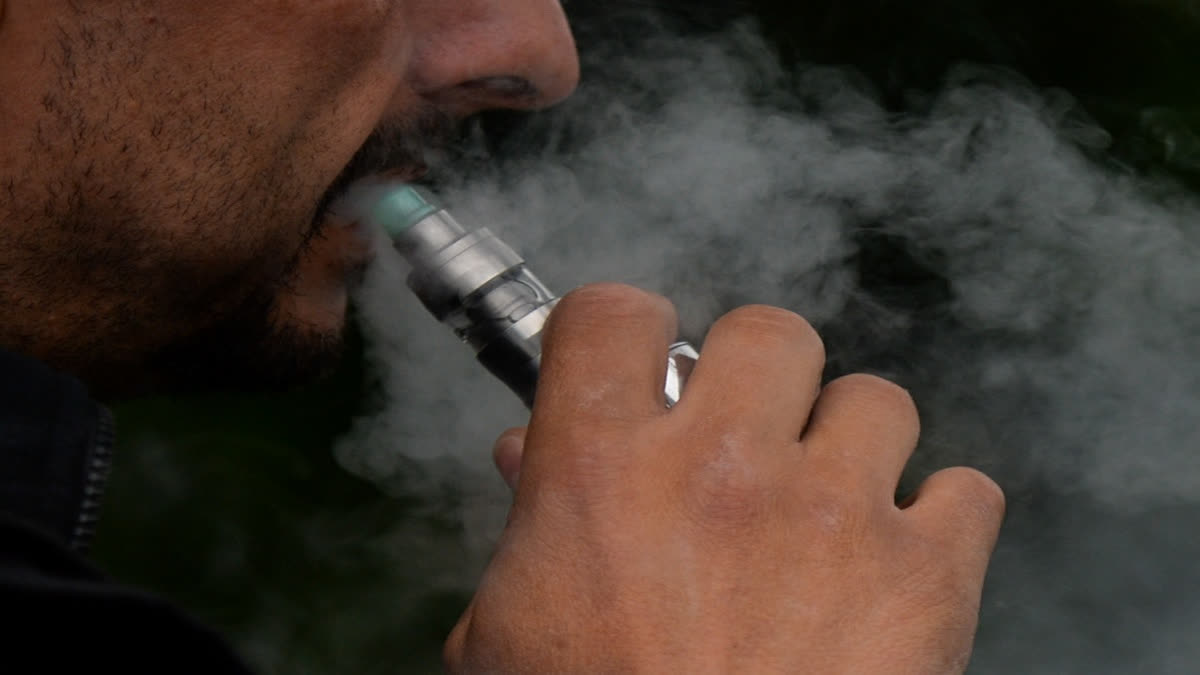New Delhi: Health and child rights experts have raised alarms about the increasing portrayal of e-cigarettes and vapes as healthier alternatives to traditional tobacco products, warning that these products are also being used as a gateway to traditional tobacco use.
They cautioned that this "misleading narrative" is a strategic attempt by the industry to target and trap the young population, particularly those aged 10 to 19 years. India has rightly banned these products, and this ban has potentially saved at least 24 million young people from falling into the trap of addiction, they said.
"E-cigarettes and vapes are as dangerous as tobacco and drugs for our country. Once a child is addicted to these products, they can easily be drawn to other forms of tobacco," said Priyank Kanoongo, Chairperson of the National Commission for Protection of Child Rights (NCPCR), at a webinar organised by the Tobacco Free India, a citizens' initiative, on Sunday.
The webinar was moderated by Arun Anand, a writer and senior journalist. The Prohibition of Electronic Cigarettes (Production, Manufacture, Import, Export, Transport, Sale, Distribution, Storage and Advertisement) Act, enacted in 2019, bans all such products, including e-cigarettes and vapes.
This law was implemented as India was already the second-largest market for tobacco, attracting many US-based companies looking to tap into the Indian market for vapes and e-cigarettes. Kanoongo, head of India's child rights body, emphasized that India has a huge young population. Every fifth person is an adolescent (10-19 years), and every third is a young person (10-24 years).
At least two million new people start using tobacco products every year, causing approximately 1.3 million deaths and contributing to more than one per cent of the GDP burden annually in our country.
"Estimates suggest that the ban on these new nicotine products will prevent at least five percent of our young population from becoming addicted to either these nicotine products or both nicotine and tobacco products. This ban has potentially saved at least 24 million young people from addiction, significantly protecting the health and development of our country," he added.
Dr Naveen Thacker, President of the International Pediatric Association (IPA), voiced concerns about the tobacco industry's tactics. "The industry is falsely promoting e-cigarettes and vapes as 'healthy' and harmless alternatives to traditional tobacco, with a relentless focus on targeting the youth. This is a blatant lie. These products are just as harmful, and their deliberate targeting of children is unmistakable," he stated.
Dr Thacker underscored the critical need for heightened awareness among children and parents to prevent the use of these hazardous products among young people. "The industry uses social media and e-commerce platforms to trap young children, leveraging influencers and even experts to lure them. Their targeting of young people is evident with flavours like bubble gum and sugar candy, being illegally sold in 6,00 enticing varieties. The misconception that they are safer than traditional tobacco must be eradicated," he added.
Dr Sudhanshu Kumar, Associate Professor at the National Law School of India University, Bengaluru, remarked, "The industry consistently argues against such legal provisions, claiming they will reduce government revenue and promote the black market. However, saving lives must take precedence, and this approach is the only effective solution. Many other countries are now striving to follow our lead."
He asserted that stringent regulations are crucial to safeguarding the population from the dangers of e-cigarettes and traditional tobacco products. "Our commitment to these regulations must remain unwavering," he added. Dr Pragya Shukla, Head of the Department of Clinical Oncology at Delhi State Cancer Institute and a renowned public health expert, emphasised the importance of countering industry tactics that portray e-cigarettes as healthy and market them to children.
"All our health experts and international health bodies, including the WHO, fully support India's move to ban e-cigarettes," she stated. The WHO has called this ban "a strong and definitive step to protect its citizens, especially the youth and children, from the increasing risk of nicotine addiction."



